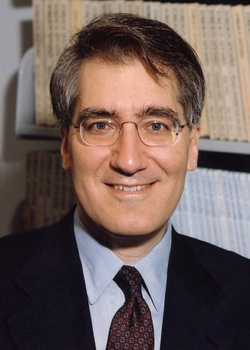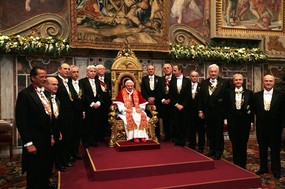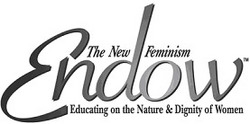 Robert George is the Director of the James Madison Program in American Ideals and Institutions at Princeton University, where he teaches Constitutional Law and Political Philosophy. As a leading scholar of Natural Law, we interviewed him about the role of religion and tradition in the so-called United States Constitutional Experiment. His contribution takes a proper place in the current debate about the relationship between state, religion and society.
Robert George is the Director of the James Madison Program in American Ideals and Institutions at Princeton University, where he teaches Constitutional Law and Political Philosophy. As a leading scholar of Natural Law, we interviewed him about the role of religion and tradition in the so-called United States Constitutional Experiment. His contribution takes a proper place in the current debate about the relationship between state, religion and society.
A. P. : Do you think that religion is meaningful to interpret the US Constitution?
R. G.: Yes. The US is a religious Country. It remains a much more religious Country than most of the Countries of continental Europe. And this is not new. The American Revolution was not like the French Revolution. The American Revolution was not an anti-religious revolution. On the contrary, it appealed to the core ideas of ethical monotheism, which are derived from the witness of the Bible. The language of the Declaration of Independence represents an interpretation of the idea from Genesis that all the men are created in the Image and Likeness of God. This is the foundation of the principle of equality – which, in turn, is the foundation of democracy. Democracy is based on the idea that all men are equal and worth of dignity. And they have right to have their opinion taken into account for the formation of the public policy. This is true if and only if human beings have an equal dignity.
What is the source of that dignity? The Declaration of Independence says it is because of our Creator – that God created us equal. Again, this is the reflection of the Biblical idea that we are created at the image and likeness of God. We have reason, and we have freedom – we have these powers, which are small but meaningful share in God’s own powers. So, the US is truly a religious country, even in the sense that our Constitutional principles are considered the effectuation of the declaration of independence.
As late as 1953 Justice William O. Douglas – which is much recorded from the left wing of American politics and Constitutional interpretation – could still say in the decision Zorach vs. Clauson: “We are a religious people whose institutions presuppose the Supreme Being.” And this is true. Our institutions presuppose the idea that there is a Supreme Being, a God who is the Source of human dignity and human equality.
A. P.: So you mean that Christianity and Christian history does matter, even in policy, right now?
R. G.: Yes, of course. But not simply Christian history. It is the Biblical witness. The ethical monotheism. Something which is common to Christian and Jews, and perhaps even to Muslims, although I don’t know the Muslim tradition very well. But it is not a specific Christian tradition. US weren’t just founded under the preposition that Christ is the Son of God, or that God is three Persons in the Trinity, but on the proposition that there is a Divine Ruler and Judge of the Universe. According to the Declaration of Independence, for instance, there is a Divine Ruler and Judge of the Universe and that we are His children, and share a profound and equal dignity as a result of our relationship to Him.
So, all the American policies are supposed to be in line with this idea that all men are created equal, that there is a Creator and that all of us share His Image and Likeness so we own dignity and must be respected, via the political institutions and society.
A. P.: Which is the role of tradition in American Constitutional history, in your opinion? Does tradition play some role in interpreting Constitution?
R. G.: In my opinion the question touches the sources of Constitution. These are the text, the logical implications of the provisions of the text, the structure of the document, the provisions within the document and its historical understanding.
It is in this broad sense – the historical understanding of the text – that tradition plays a role. We look at what was the goal of those who were responsible in making the Constitution. These goals are meant to be the effectuation of the values for the sake of which the Constitution was created and the institutions put into place. In our commitment to understand them, for example, we can consider the “equal dignity of the human person”. The Declaration of Independence, which was the founding document of the American regime, says “We hold these Truths to be self-evident, that all Men are created equal, that they are endowed by their Creator with certain unalienable Rights, that among these are Life, Liberty, and the pursuit of Happiness”. The Constitution, ratified many years later, was meant to give life to these principles.
So our tradition is one of respect to these principles and the role of the Constitution is to give life to them. So our tradition of Constitutional interpretation pays attention of the historical purposes of the Constitution. So this, too, might be understood as a role that tradition plays in the interpretation of our Constitution.
A. P.: So which is your opinion about Justice Scalia’s approach, who pays much attention to the Framers?
R. G.: Scalia is not purported to get into the subjective consciousness of the Framers who ratified the Constitution, but rather to recover what was understood, at the time of the ratification by all those who deliberated and participated in the debate on the particular provisions of the Constitution, should be ratified.
That attempt to recover the understanding is itself something difficult and is a matter of tradition: the historical understanding of the text and the meaning of the text of the Constitution. So I think this is the role for tradition.
We also have a common law tradition, which has an impressive difference from continental European systems. Tradition inside the tradition: this is the idea that the decisions can establish a tradition, which should be respected even if decisions in the first instance are not entirely correct.
Interview with Robert George by Andrea Pin from the Oasis Center


